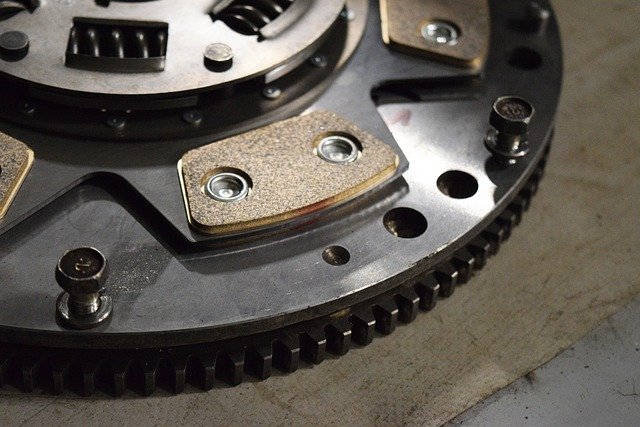Understanding the Economics of Remanufactured Transmissions
Remanufactured transmissions offer a cost-effective alternative to purchasing new units, combining affordability with reliability. These rebuilt components undergo extensive restoration processes that return them to near-original specifications while maintaining a significantly lower price point. For vehicle owners facing transmission failure, understanding the economics behind remanufactured options can lead to informed decisions that balance budget constraints with quality expectations. This article explores the financial advantages, technical processes, and key considerations involved in choosing remanufactured auto transmissions.

When a vehicle’s transmission fails, the repair bill can be substantial. Many drivers find themselves weighing the costs of a new transmission against alternatives that might offer similar performance at a fraction of the price. Remanufactured transmissions have emerged as a practical middle ground, providing restored functionality without the premium cost of brand-new components.
Benefits Of Choosing A Remanufactured Auto Transmission
Opting for a remanufactured transmission delivers several economic and practical advantages. The most immediate benefit is cost savings, with remanufactured units typically priced 30 to 50 percent lower than new transmissions. This price difference can translate to savings of several thousand dollars depending on the vehicle make and model.
Beyond initial cost, remanufactured transmissions often come with warranties comparable to new units, ranging from one to three years in many cases. This warranty coverage provides peace of mind and financial protection against potential defects. Environmental considerations also play a role, as remanufacturing reduces waste by repurposing existing components rather than manufacturing entirely new parts. Additionally, remanufactured transmissions undergo rigorous testing and quality control procedures that can match or exceed original equipment manufacturer standards.
Reman Auto Transmissions And How They Work
Remanufactured transmissions differ fundamentally from simple repairs or rebuilds. The remanufacturing process involves completely disassembling the transmission unit and inspecting every component. Worn or damaged parts are replaced with new or refurbished components that meet original specifications. The transmission case and housing are thoroughly cleaned, and all seals, gaskets, and friction materials are replaced.
Once reassembled, remanufactured transmissions undergo comprehensive testing on specialized equipment that simulates real-world driving conditions. This testing ensures proper gear engagement, hydraulic pressure, and overall performance before the unit is approved for sale. The result is a transmission that functions like new while incorporating improvements that address known weaknesses in the original design.
What To Look For When Buying A Remanufactured Transmission
Selecting the right remanufactured transmission requires attention to several critical factors. Warranty terms should be clearly defined, specifying coverage duration, mileage limits, and what components are included. Reputable remanufacturers provide detailed warranty information and honor their commitments without excessive restrictions.
The source of the remanufactured transmission matters significantly. Established remanufacturers with proven track records and positive customer reviews offer greater reliability than unknown suppliers. Certifications and industry affiliations can indicate adherence to quality standards. Compatibility with your specific vehicle is essential, requiring verification of the transmission model, year, and any variations in your vehicle’s configuration.
Transparency about the remanufacturing process and component replacement policies distinguishes quality providers. Ask whether all wear items are automatically replaced and what percentage of components are new versus refurbished. Installation support and technical assistance can also add value, particularly if complications arise during installation.
Key Steps In The Remanufacturing Process For Auto Transmissions
The remanufacturing process follows a systematic approach designed to restore transmissions to optimal condition. Initial inspection identifies the transmission model and assesses overall condition. Complete disassembly follows, with each component cataloged and evaluated for wear, damage, or defects.
Cleaning represents a critical phase, removing accumulated debris, metal particles, and old fluid residue. Specialized cleaning equipment and solutions ensure thorough removal of contaminants that could compromise performance. Component inspection uses precision measuring tools to verify that parts meet tolerance specifications. Items falling outside acceptable ranges are replaced.
Reassembly incorporates new gaskets, seals, clutch plates, bands, and other wear items regardless of their apparent condition. Torque specifications and assembly procedures follow manufacturer guidelines precisely. Final testing on dynamometers and test stands validates shift quality, pressure readings, and leak prevention before the transmission receives approval for sale.
Real-World Cost Insights and Provider Comparison
Understanding actual pricing helps in budgeting for a remanufactured transmission. Costs vary based on vehicle type, transmission complexity, and whether installation is included. The following table provides general cost estimates for remanufactured transmissions from various provider types:
| Provider Type | Cost Range | Warranty Period | Key Features |
|---|---|---|---|
| National Remanufacturers | $1,800 - $3,500 | 3 years/unlimited miles | Extensive testing, nationwide support |
| Local Transmission Shops | $1,500 - $3,000 | 1-2 years/limited miles | Personalized service, local accountability |
| Online Suppliers | $1,200 - $2,800 | 1-3 years/varies | Lower overhead costs, shipping included |
| Dealership Reman Programs | $2,500 - $4,500 | 3 years/100,000 miles | OEM specifications, dealer backing |
Prices, rates, or cost estimates mentioned in this article are based on the latest available information but may change over time. Independent research is advised before making financial decisions.
Installation costs typically add $500 to $1,200 depending on vehicle complexity and labor rates in your area. Some providers include installation in their pricing, while others sell transmissions as standalone units. Total project costs for a remanufactured transmission replacement generally range from $2,000 to $5,000, compared to $4,000 to $8,000 or more for new transmission installations.
Making an Informed Decision
Remanufactured transmissions represent a financially sensible option for many vehicle owners. The combination of significant cost savings, comprehensive warranties, and quality restoration processes makes them competitive with new transmissions in most scenarios. Success depends on selecting reputable providers, verifying compatibility, and understanding warranty terms.
For vehicles with moderate to high mileage where investing in a new transmission may not be economically justified, remanufactured units offer extended service life without excessive expense. The environmental benefits of remanufacturing add another dimension to the decision, contributing to resource conservation and waste reduction. By carefully evaluating options and choosing quality remanufacturers, vehicle owners can achieve reliable transmission performance while managing costs effectively.




